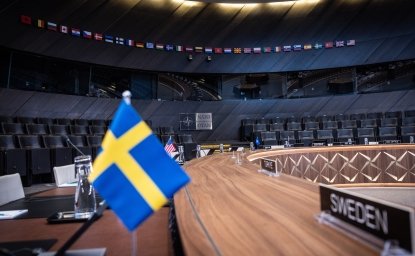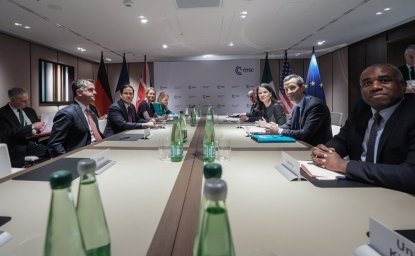220. Bombing to Bring Peace

On March 24, 1999, NATO attacked Serbia and bombed it for two and half months. Around two thousand civilians were killed - a figure most often quoted locally and probably realistic. Milosevic's regime quoted a figure of five thousand, NATO of five hundred. There is more agreement about the number of Serbian soldiers (both in the military service and the reservists) and policemen killed - seven hundred and two hundred respectively. The material damages are between thirty and fifty billion dollars. As a result, Serbia, which had been poor, became even poorer, unemployment increased and wages decreased.
Milosevic's regime claimed that NATO killed civilians intentionally. For its part, NATO defended itself by stating that these were "collateral damages." The truth was somewhere in the middle - due to Western public opinion, NATO planners had to show concern that there be no large-scale civilian casualties, but they did not make a major effort to decrease civilian casualties as much as possible. The pilots were, for example, allowed to drop bombs, both "smart' and "dumb," from great heights on targets which were not clearly visible.
Inflicting "moderate" suffering on the civilian population suited NATO planners - the suffering would be used to break the population's will to resist and force it to rise up against Milosevic. This is also the reason behind the selection of targets without any military significance: factories producing cigarettes, cars, vacuum cleaners, artificial fertilizers, or state and military buildings which are primarily administrative and representative buildings, rather than command centers. Without any justification or rationale, NATO bombs also destroyed bridges in Novi Sad, the capital of Vojvodina, and an important cultural center often referred to as the "Serbian Athens."
The crucial question is: was NATO right when it bombed Serbia last spring and summer? No, it was not - and here are the reasons why.
Since the period starting with 1988-1989 when Milosevic abolished Kosovo's autonomy, fired thousands of Albanians from state institutions and factories, and transformed a bi-national police force into a purely Serbian entity which beat and arrested Albanians often without much cause, I publicly denounced Milosevic's anti-Albanian policies as the "anti- politics of a bully." However, I deeply disagree with those Western politicians, diplomats and journalists who compare Milosevic to Saddam Hussein, Pol Pot or sometimes even Adolf Hitler.
While repressing the Albanians, Milosevic at the same time allowed them considerable freedom - or at least felt unable to limit it due to domestic and international constraints. The Albanians formed their own political parties, developed private enterprises, and created an independent educational system. Their standard of living was much higher than in Albania; until the appearance of the guerilla-terrorist Kosovo Liberation Army in 1997, there was also more law and order in Kosovo than in Albania. I would even dare to claim that no Muslim country in the world from Morocco to Indonesia - had a press more free than that of Kosovo's Albanians. Their newspapers and journals did not worry about demanding independence and often sharply, sometimes even brutally, attacked Milosevic, occasionally with my help. Neither the Kosovo Albanian editor who interviewed me was arrested, nor did the police knock on my door. (Unfortunately, neither did Milosevic hurry to resign.)
Albanian leaders refused to cooperate even with anti-nationalist Serb leaders and chose to boycott all elections. With Albanian votes, Milosevic would have lost the elections for the president of Serbia as early as 1992, when he defeated Milan Panic, a Californian businessman of Serbian origin. Yet, Western leaders never pressured the Albanians to join the political process in Serbia. For their part, while the Serb opposition leaders opposed Albanian demands for independence, they often treated them as equal partners and statesmen of an independent country.
NATO leaders pointed out that the repression that occurred in Kosovo does not exist in any Western democratic country. They were right. Western countries however, do not have such great problems with national groups as Serbia. In order to avoid such problems, Western countries have a strict regime of visas to prevent the number of foreigners from increasing. In Serbia there are twenty-six minority groups, their members represent about one third of the population; additionally, about one quarter of the population are Muslims (mostly Albanians, but also South Slavs). The Albanian minority has the largest population growth in Europe - in the 1980s, for example, an Albanian peasant woman gave birth on average to seven children. The result of this population growth spurt has been many unemployed, dissatisfied young people angry and prone to extremism.
When the first bombs fell on Serbia, Milosevic had been ruling for twelve years; Hitler with whom he is sometimes compared, was in power in Germany for a similar period of time, from 1933 until 1945. Because he supplied weapons to the Bosnian Serbs, Milosevic is undoubtedly one of the leaders responsible for war in Bosnia. In Milosevic's Serbia, however, until the beginning of the NATO bombing, not a single mosque was destroyed, nor was any minority group expelled ("ethnically cleansed"). There is not a single territory of Serbia in which non-Serbs were a majority and where he settled Serbs. If the number of Jews in Germany at the time Hitler committed suicide in his bunker had been exactly the same as it was when he had come to power would Hitler have been Hitler?
There are numerous proofs that there was no ethnic cleansing in Kosovo before the bombing. The existence of ethnic cleansing was not mentioned in the reports of either journalists or diplomats, and there were no camps of Kosovar Albanian refugees in either Albania or Macedonia prior to the bombing. Last but not least, the Hague tribunal indicted Milosevic only for the crimes committed in Kosovo during the bombing, and not before it.
The war in Kosovo was a consequence of three extremist policies: Albanian, Serbian and Western. Albanian and Serbian extremism could be partially excused but Western extremism is inexcusable. NATO wanted to demonstrate its power and might and reinforce its unity, shaken after the end of the Cold War. The real purpose behind the Kosovo war was that NATO leaders wanted to punish Milosevic and Serbia for resisting them, not untying the "Kosovo knot" or stopping the humanitarian catastrophe, which was non-existent anyway. During the bombing, NATO leaders did not look for compromises such as allowing Serbian troops to remain in Kosovo after NATO would move in. After the war, NATO seemed disappointed that only three thousand bodies were dug out - during the bombing, some NATO leaders claimed that there were one hundred thousand dead and the German foreign minister spoke of a new Auschwitz. The majority of those killed were men, not women and children. Though there is little doubt that the majority were innocent victims of the Serbian paramilitary formations, many were killed in battle, by NATO bombs, or executed by the Kosovo Liberation Army because they did not want to enlist. Milosevic is guilty for allowing such misdeeds to take place and for masterminding the expulsion of hundreds of thousands of Albanians into Albania and Macedonia during the bombing, even if there is no real evidence of direct orders. However, Albanian leaders and commanders are also guilty, especially Hashim Thaci, former leader of the Kosovo Liberation Army. And NATO leaders and commanders are not innocent either.
It is much more important to establish whether the entire military operation had any sense or meaning. If indeed NATO had found hundreds of thousand of bodies it would actually have been proof that the NATO intervention was a complete failure, and not a justification for it - after all, the intervention was supposed to stop the crimes, not massively increase them. Second, if Milosevic had been what the West personified him as - a Serbian Pol Pot or Hitler - he would have used the bombing as an opportunity to kill the majority or perhaps most of the Albanians in Kosovo - he had enough time, troops, and weapons.
Justified or not, meaningful or meaningless, last year's bombing brought about the withdrawal of Serbian troops and the entry of NATO into Kosovo. After the end of the bombing, there began the undoubted defeat of NATO. Instead of a multi-ethnic democracy which the NATO leaders promised and president Clinton insisted America was fighting for, the Kosovo Liberation Army, which had been armed and brought to power by NATO, expelled almost all non-Albanians from Kosovo: Serbs, Montenegrins, South Slav Muslims, Roma gypsies, Turks, and others. Over 200,000 Serbs escaped into Serbia proper and joined over half a million Serbian refugees from Croatia and Bosnia.
In Pristina alone there had been around 40,000 Serbs - now there are several hundred left. In the beginning of January 2000, in the center of Pristina, a mob celebrating the Albanian national holiday, "the day of the flag," lynched an elderly Serbian professor who had also taught in the United States. This incident is just an example of several which occur on a routine basis in front of 40,000 NATO-led troops armed with the most modern weapons. Carl Bildt, the special representative of the general secretary of the United Nations for the Balkans and the former prime minister of the Swedish government, considers the situation in Kosovo to be worse than it ever was in Bosnia and that the most brutal methods of ethnic cleansing were used.
Aleksa Djilas spoke together with Steven Burg, Andrew Michta and Sabrina Ramet at a November 17, 2000 Colloquium entitled "Five Years of Peacekeeping in the Balkans: What Have We Achieved?" The above is a summary of his presentation. Meeting Report #220.
Author

Global Europe Program
The Global Europe Program is focused on Europe’s capabilities, and how it engages on critical global issues. We investigate European approaches to critical global issues. We examine Europe’s relations with Russia and Eurasia, China and the Indo-Pacific, the Middle East and Africa. Our initiatives include “Ukraine in Europe”—an examination of what it will take to make Ukraine’s European future a reality. But we also examine the role of NATO, the European Union and the OSCE, Europe’s energy security, transatlantic trade disputes, and challenges to democracy. The Global Europe Program’s staff, scholars-in-residence, and Global Fellows participate in seminars, policy study groups, and international conferences to provide analytical recommendations to policy makers and the media. Read more

Explore More
Browse Insights & Analysis
Trump Speaks with Putin in Effort to End Russia-Ukraine War

From Partner to Ally: Sweden’s First Year in NATO

“Security, Europe!”: Poland's Rise as NATO's Defense Spending Leader
